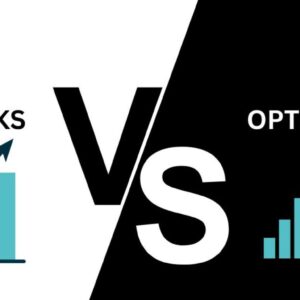Trading is a challenging and competitive activity that requires careful planning and execution. While many traders focus on finding the best trades, few pay enough attention to money management. Effective money management is critical to long-term success in trading. In this article, we will explore the importance of money management in trading and how it can help you become a more successful trader.
What is Money Management?
Money management is the process of managing your trading capital to minimize risk and maximize profits. It involves setting limits on the amount of capital you risk on each trade and using appropriate position sizing and risk management strategies.
Why is Money Management Important in Trading?
Money management is critical in trading for several reasons:
Minimizes Risk:
he financial markets are inherently risky, and even the best traders will have losing trades. Effective money management helps minimize your risk and preserve your capital.
Protects Capital:
Protecting your capital is essential in trading. If you lose your trading capital, you cannot trade anymore. Effective money management helps protect your capital by limiting the amount of capital you risk on each trade and using appropriate position sizing and risk management strategies.
Increases Consistency:
Consistency is essential for success in trading. Effective money management helps you achieve consistency by controlling your risk and allowing you to stay in the game for the long term.
Maximizes Profits:
Effective money management not only helps minimize your losses but also maximizes your profits. By managing your capital effectively, you can take advantage of profitable trading opportunities and increase your overall profitability.
Reduces Emotional Trading:
Emotions can often cloud judgment in trading. Effective money management helps reduce emotional trading by providing a structured approach to managing your trades.
How to Implement Money Management in Trading
Implementing effective money management in trading requires a structured approach. Here are some tips to help you implement money management in your trading:
Set Risk Management Rules:
Before you start trading, set clear risk management rules. This includes determining the maximum amount of capital you are willing to risk on each trade, setting stop-loss orders, and determining your position sizing.
Use Position Sizing:
Position sizing is the process of determining the number of shares or contracts to buy or sell based on the amount of capital you are willing to risk on each trade. This helps ensure that you do not risk too much on any single trade.
Use Stop-Loss Orders:
Stop-loss orders are an essential risk management tool that helps limit your losses. Use stop-loss orders on every trade to protect your capital.
Use Profit Targets:
Profit targets are the price levels at which you plan to take profits on a trade. Setting profit targets helps ensure that you take profits when the market is favourable and avoid giving back profits when the market turns against you.
Keep a Trading Journal:
Keeping a trading journal is a great way to track your progress and identify areas for improvement. Record your trades, your thought process, and the outcomes. Analyze your journal regularly and make adjustments to your money management strategies as necessary.
Conclusion
Effective money management is critical for success in trading. It helps minimize your risk, protect your capital, increase consistency, maximize profits, and reduce emotional trading. To implement effective money management in trading, set risk management rules, use position sizing, stop-loss orders, and profit targets, and keep a trading journal. By implementing these strategies, you can become a more disciplined and successful trader.


